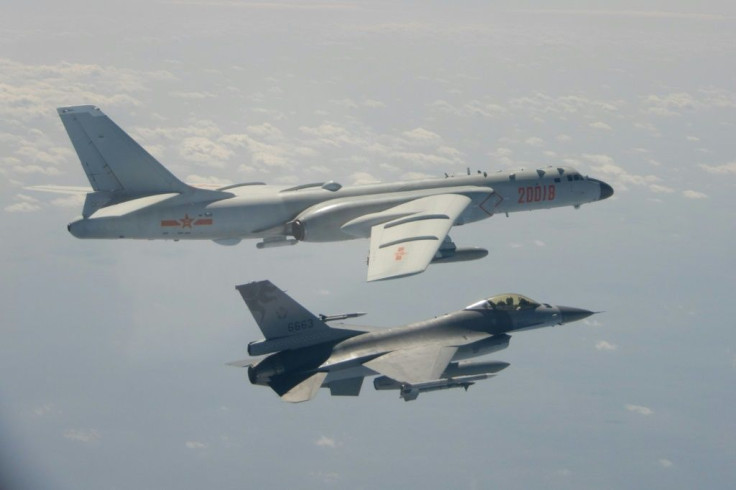Coronavirus Tensions: A Chinese Hawk Cautions Beijing On Taking Back Taiwan Now
KEY POINTS
- Qiao Liang is a retired Chinese air force major general who normally takes a hawkish view about Chinese political issues
- Qiao said, “China’s ultimate goal is not the reunification of Taiwan, but to achieve the dream of national rejuvenation so that all 1.4 billion Chinese can have a good life”
- The tussle between China and Taiwan goes back to the 1949 Chinese civil war
Qiao Liang is a retired Chinese air force major general who normally takes a hawkish view about Chinese political issues. He has written several books with one from 1999 titled “Unrestricted Warfare,” a book on military strategy. Co-written by Qiao and another colonel from the People’s Liberation Army (PLA), it focuses on how a nation like China can prevail over a technologically superior opponent through a variety of means.
In military lingo, a “hawk” usually favors entry into a war to resolve a dispute while a “dove” opposes the use of military force. While Qiao has not abandoned his views, he is taking a more dove-like approach concerning Beijing’s objective to take back Taiwan by force in a reunification effort using the coronavirus pandemic as an opportunity over a distracted U.S. military.
Qiao is now a professor at the PLA National Defense University in Beijing. He said during an interview Monday to the South China Morning Post, “China’s ultimate goal is not the reunification of Taiwan, but to achieve the dream of national rejuvenation so that all 1.4 billion Chinese can have a good life.”
He added, “Could it be achieved by taking Taiwan back? Of course not. So, we shouldn’t make this the top priority. If Beijing wants to take Taiwan back by force, it will need to mobilize all its resources and power to do this. You shouldn’t put all your eggs in one basket, it’s too costly.”
The tussle between China and Taiwan goes back to the 1949 Chinese civil war. China continues to claim sovereignty over the island and has made it clear it is willing to use force to achieve a total re-unification presumably under Chinese Communist rule. Chinese President Xi Jinping described unification as “inevitable.” Most Taiwanese citizens are opposed to reunification.
A revision of Qiao’s book was released in August 2017 under the ominous title “Unrestricted Warfare: China's Master Plan to Destroy America”. The book convinced Steve Bannon, who served under U.S. President Donald Trump as a political adviser, that “China was engaging in economic warfare against us”. Coincidentally, Bannon was either fired or he resigned from the Trump administration Aug. 18, 2017.
Qiao wrote on the Chinese social media platform WeChat on Monday, “It’s undeniable that the US has been in a hurry to deal with the Covid-19 pandemic, and its military strength is reduced … however [the virus crisis] just creates a short tactical window [for China] which is not big enough to solve the strategic dilemma it will face in the future unless it’s almost certain that Covid-19 will lead to the collapse of the United States.”
He pointed out the Chinese economy was still heavily reliant on the U.S. dollar and said a war over Taiwan would be a massive economic blow to China with capital flooding out of the country and many companies being forced to close. He said, “This would just be a huge price to pay and it would jeopardize China’s goal of national rejuvenation.”

© Copyright IBTimes 2025. All rights reserved.





















